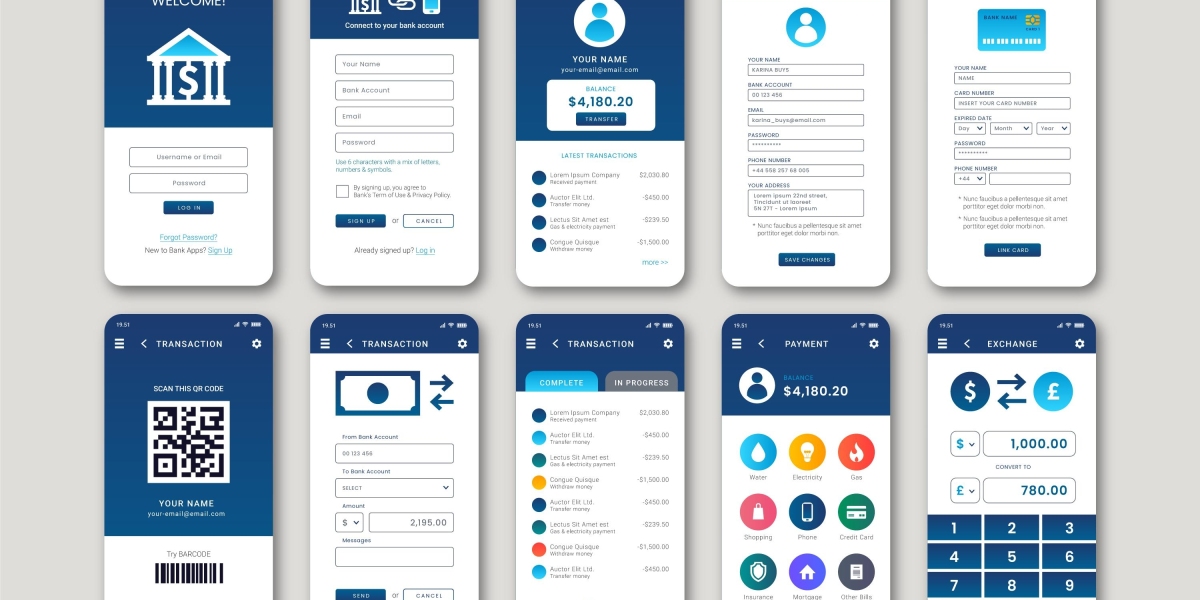In the ever-evolving landscape of finance, technology has played a pivotal role in reshaping the way we manage, invest, and transact. The integration of technology into financial services, often referred to as financial technology or fintech, has given rise to a myriad of innovative applications that are transforming the financial industry. In this blog post, we'll delve into the exciting world of fintech applications, exploring the various ways in which technology is revolutionizing finance.
1. Digital Payments: The New Norm
One of the most prominent and widely adopted fintech applications is digital payments. Traditional methods of payment are gradually being replaced by digital alternatives, offering greater convenience, security, and efficiency. Mobile payment platforms, such as PayPal, Venmo, and Cash App, have become household names, enabling users to seamlessly transfer money, split bills, and make purchases with just a few taps on their smartphones. Cryptocurrencies, like Bitcoin and Ethereum, have also gained traction as decentralized digital currencies, providing an alternative to traditional fiat currencies.
2. Robo-Advisors: Smart Investing
Investing has become more accessible to the masses with the advent of robo-advisors. These automated investment platforms use algorithms to create and manage diversified portfolios based on an individual's financial goals, risk tolerance, and time horizon. Robo-advisors offer a cost-effective and user-friendly alternative to traditional financial advisors, making investment strategies more transparent and tailored to the needs of the investor.
3. Blockchain and Smart Contracts: Secure and Transparent Transactions
Blockchain technology, the underlying innovation behind cryptocurrencies, has far-reaching implications for the financial industry. Its decentralized and distributed ledger system ensures secure and transparent transactions. Smart contracts, self-executing contracts with the terms of the agreement directly written into code, automate and enforce contractual agreements without the need for intermediaries. This not only reduces the risk of fraud but also streamlines complex processes, such as settlements and compliance.
4. Peer-to-Peer Lending: Democratizing Finance
Fintech has disrupted traditional lending models through the rise of peer-to-peer (P2P) lending platforms. These platforms connect borrowers directly with lenders, cutting out traditional financial institutions. P2P lending democratizes access to credit, providing borrowers with more options and potentially lower interest rates, while offering lenders the opportunity to earn returns on their investments. This decentralized approach to lending has expanded financial inclusion and created new opportunities for individuals and small businesses.
5. Regtech: Navigating Regulatory Compliance
Navigating the complex landscape of regulatory compliance is a significant challenge for financial institutions. Regulatory technology, or regtech, leverages advanced technologies such as artificial intelligence and machine learning to help financial institutions streamline compliance processes, monitor transactions for suspicious activities, and ensure adherence to regulatory requirements. Regtech not only enhances efficiency but also reduces the risk of legal and financial consequences associated with non-compliance.
6. Insurtech: Innovations in Insurance
The insurance industry has not been immune to the transformative power of fintech. Insurtech, a subset of fintech, focuses on leveraging technology to enhance and streamline insurance processes. From data analytics and artificial intelligence for risk assessment to digital platforms for policy management and claims processing, insurtech is revolutionizing an industry known for its traditional and paperwork-intensive practices.
Conclusion
As fintech continues to evolve, its applications are reshaping the financial landscape at an unprecedented pace. From digital payments and smart investing to blockchain and regtech, the integration of technology is fostering a more inclusive, efficient, and secure financial ecosystem. The journey of fintech is far from over, and the innovations yet to come promise to further redefine how we perceive and interact with finance in the years ahead.
Lastly, if you are an owner of an app and want to list it on the top of the list on our website, you can visit Mobileappdaily.
Content Source - https://www.mobileappdaily.com/products/best-fintech-apps









